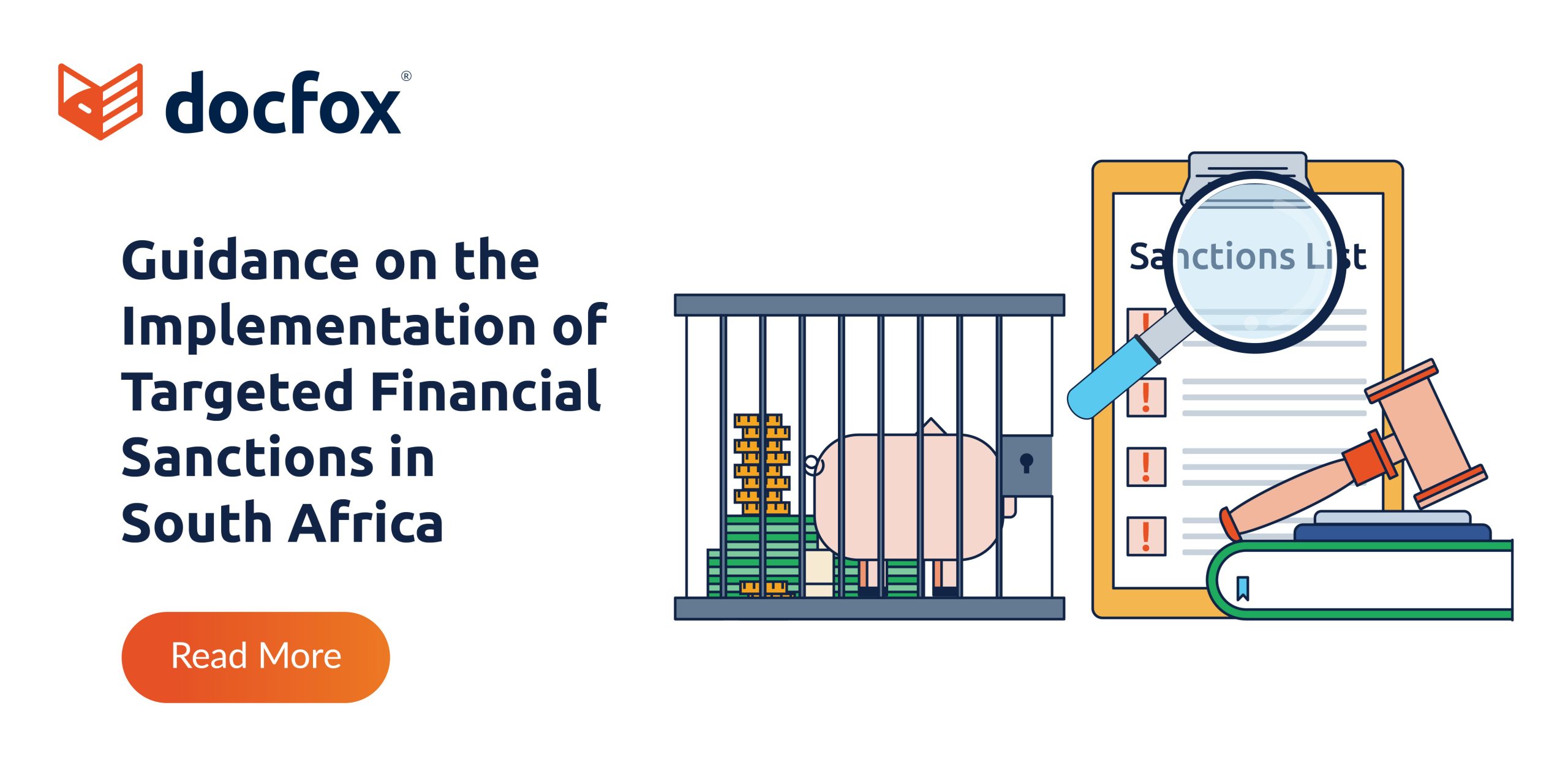Guidance on the implementation of Targeted Financial Sanctions in South Africa

02 Feb 2024
At the end of 2023 the Financial Intelligence Centre (FIC) released a Public Compliance Communication (PCC) 44A) that provides guidance to Accountable Institutions (AIs) regarding their obligations to implement United Nations Security Council Resolutions (UNSCR) and domestic designations asset freezing requirements of Targeted Financial Sanctions (TFS), which are aimed at combating the financing of terrorism (CFT) and of combating the financing of proliferation (CFP) of weapons of mass destruction (WMD).
Targeted Financial Sanctions list
AIs in South Africa are required to screen against the TFS list on an ongoing basis. Information must be scrutinised at onboarding, when conducting transactions and as and when the TFS list is updated.
The obligation of this requirement extends itself to the application of freezing of assets of designated persons or entities without delay, and then file a terrorist property regulatory report with the Financial Intelligence Centre. The AI has the discretion of how to communicate with the designated person/entity if their funds or other assets have been frozen. This is not considered tipping off, as they would most likely be aware of their TFS listing. No person may provide or make funding available to designated persons or entities. Where a person or entity has been delisted from the TFS list an AI has the obligation to unfreeze the property/assets.
Non Targeted Financial Sanctions lists
While the requirement in South Africa is to screen against the TFS list only, AIs may screen clients against other internationally recognised sanctions lists in accordance with its risk-based approach and with its obligations with correspondent relationships.
Sections 26A, 26B, 26C and 28A of the FIC Act does not apply where the person or entity is not designated on the TFS list as published on the FIC website and UNSC Consolidated Sanctions list.
However, we would suggest that if one of your clients is on another sanctions list besides the UN TFS list, it is still a reputational and economic risk to enter into business with a sanctioned individual. To mitigate risk, DocFox offers comprehensive screening including lists such as EU, OFAC, Interpol, World Bank and UK lists amongst many others.
In addition, where there may be a hit against any other sanction list besides the TFS list, an AI is strongly recommended to submit a section 29 suspicious and unusual transaction report.
AIs must adopt a risk-based approach to ensure their controls are proportionate to the Terrorist Financing (TF) and Proliferation Financing (PF) risks. The approach, manner and full sanctions related process should then be documented within the AIs Risk Management and Compliance Programme (RMCP). AIs must conduct business risk assessments, client level risk assessments, as well as new product and process risk assessments to identify and assess the risk of TF, and implement controls to monitor, mitigate and manage the risk of TF.
AIs can proactively develop controls aimed at identifying transactions or activity that pose a heightened TF risk by understanding the terrorist financing methods, this includes methods of raising the terrorist funds as well as methods of moving the terrorist funds.
Failure to comply with the TFS requirements not only constitutes an offence under FICA, but the consequences of facilitating TF activities may have devastating effects to AIs and broader society. AIs should therefore implement the necessary controls required, for a zero tolerance risk based approach to mitigate TF financing risks. This is where an effective RMCP is required and where a reliable screening solution may be useful.
DocFox screens your clients daily against sanctions and other watchlists, and combs through billions of online news articles searching for relevant media. Our comprehensive DocFox watchlist is included in our screening and provides global coverage for identifying Domestic Politically Exposed Persons (DPEPs), Foreign Politically Exposed Persons (FPEPs) and Prominent Influential Persons (PIPs), including their known close associates. Read more here.
See also:
- Important FICA & AML updates: 2023 round-up
- A rallying call against financial malfeasance
- Ultimate beneficial ownership registration requirements
- Remain abreast of prescribed regulatory requirements with Sabinet Financial Regulatory Instruments

